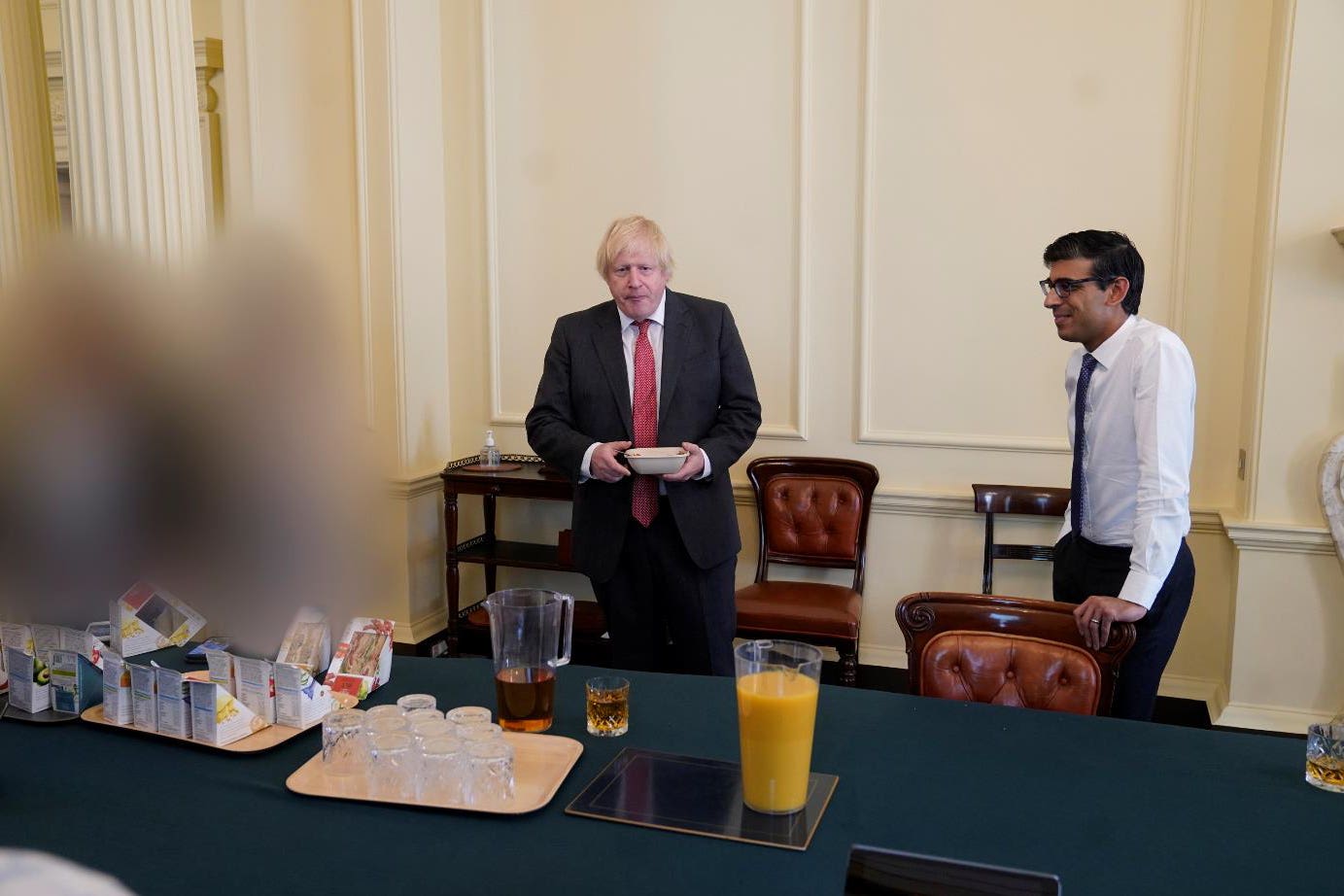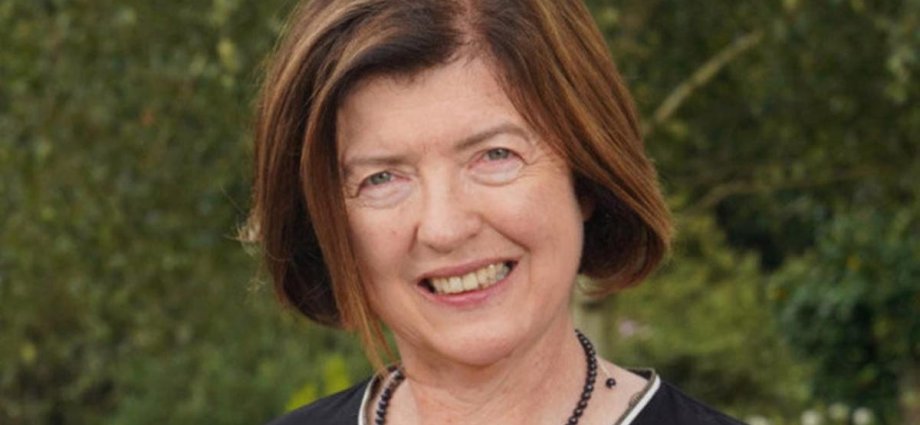Sue Gray, the former senior civil servant who rose to fame when she was handed responsibility for untangling the ‘Partygate‘ saga, has resigned as Sir Keir Starmer’s chief of staff and will take up a new role in government.
Ms Gray said she was standing down because it had “become clear to me that intense commentary around my position risked becoming a distraction to the government’s vital work of change”.
Concerns over the power of Ms Gray in government were recently raised when it was revealed she is paid more as chief of staff than the prime minister.
The BBC revealed last month that Ms Gray asked for and was given a salary of £170,000 after July’s election – about £3,000 more than Sir Keir.
Tensions flared in Sir Keir’s Downing Street operation after the salary revelation, although the party said at the time she “had no involvement in any decision on her pay”.
A power struggle had reportedly been playing out between Ms Gray and Sir Keir’s election guru Morgan McSweeney since Labour’s general election win. Mr McSweeney will now replace Ms Gray as the prime minister’s chief of staff.

Resignation as chief of staff
Ms Grey quit as Downing Street chief of staff because of fears she was “becoming a distraction” to Sir Keir’s government.
In a statement on Sunday, Ms Gray said she was “pleased to have accepted a new role as the Prime Minister’s envoy for the regions and nations”.
Sir Keir thanked Ms Gray for “all the support she has given me, both in opposition and government, and her work to prepare us for government and get us started on our programme of change”.
He added: “Sue has played a vital role in strengthening our relations with the regions and nations. I am delighted that she will continue to support that work.”
Controversy around her appointment as chief of staff
Ms Gray was offered the chance to become Sir Keir Starmer’s chief of staff in March 2023 and duly resigned her post as second permanent secretary in the Cabinet Office – one of the highest positions in the civil service.
She was accused of failing to disclose the discussions in advance, a potential breach of the rules governing civil service conduct, which was investigated by the independent Advisory Committee on Business Appointments.
Her move was denounced by Conservative allies of former prime minister Boris Johnson, who alleged the matter was evidence of political bias on Ms Gray’s part and attempted to use it to discredit her ‘Partygate’ investigation findings.
But the former mandarin was defended by Sir Keir, who accused the then Conservative government of using the affair to distract from more pressing concerns. In June she was given the go-ahead to take up the role by the appointments watchdog following an investigation.
‘Partygate’ scandal
Ms Gray, then second permanent secretary at the Cabinet Office, was given the job of leading the inquiry into the ‘Partygate’ scandal in December 2021 after cabinet secretary Simon Case recused himself when it emerged that one of the parties had been held within his department.
As she gathered evidence, Ms Gray’s assignment seemed to grow more complicated by the day as more and more revelations continued to come to light on the front pages of Britain’s newspapers.
Not only was establishing the precise narrative of what went on when and who knew about it a tricky enough task for the inquisitor, but she also faced the prospect of incurring anger from voters if she was ultimately deemed to have been too lenient or to have carried out a “whitewash” on the PM’s behalf.

The initial findings of her report were published on 31 January 2022, in which Ms Gray said there had been “a serious failure of leadership” and that several of the parties concerned were “difficult to justify” in the context of the severe social restrictions imposed on the British public at the time.
Her evidence was then passed onto the Metropolitan Police, who duly handed out 126 fixed penalty notices, before the full version was published on 25 May, all of which placed huge pressure on Mr Johnson and was a crucial factor in his finally being driven from office that summer.
Ms Gray’s career in the civil service
Before finding herself thrust centre stage by ‘Partygate’, Sue Gray had enjoyed a reputation for being impeccably discreet and efficient, nicknamed “the woman who runs the country” and “deputy God” by MPs Oliver Letwin and Paul Flynn respectively.
So discreet, in fact, that even her own age was disputed.
She is either 65 or 66, did not attend university and has been in the civil service since the late 1970s, barring a career break during the 1980s when she abandoned Westminster to run a pub called The Cove in Newry, Northern Ireland, with her husband, a country singer named Bill Conlon.
“If a pub landlady doesn’t know what a party is, who will?” a rather wry family friend told The Daily Mail’s Michael Crick at the height of the excitement surrounding her report.
According to her perfunctory biography on the government website, she has worked in the departments of transport, health and work and pensions “covering a range of roles which included both policy and front-line delivery”.
Subsequently joining the Cabinet Office in the late 1990s, Ms Gray eventually became director general of propriety and ethics from 2012 to 2018.
It was in that guise that she carried out a number of high-profile inquiries into the likes of defence secretary Liam Fox, ex-chief whip Andrew Mitchell over “plebgate”, and Damian Green, Theresa May’s deputy prime minister, who was dismissed after he was found to have been “misleading” in a statement made to police regarding pornography on his office computer in 2008.
“Sue has been there for so long, she knows everything that anybody has ever done wrong,” ex-Cabinet Office special adviser Polly Mackenzie told the BBC’s Profile programme in 2017.
It was also in relation to this period as ethics chief that former BBC Newsnight journalist Chris Cook complained Ms Gray was “notorious for her determination not to leave a document trail” and had assisted departments to “fight disclosures” in the shape of freedom of information requests.
“If the government feels it has to get rid of a minister, she will give them cover to do that. If a government really wants to keep someone, she’ll find a way to do that,” he said.
She served as permanent secretary to the Northern Irish executive’s department of finance on secondment from the Cabinet Office between 2018 and 2021.











